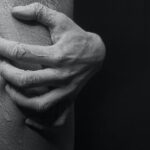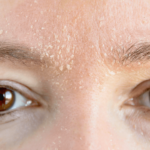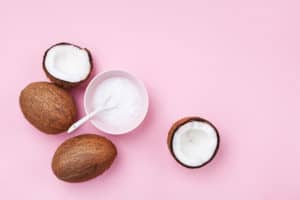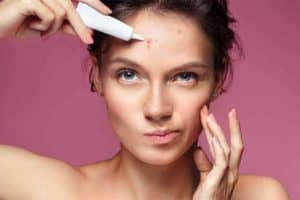When it comes to skincare, it can be difficult to determine what works best for your skin. With so many products and routines available, it can be overwhelming to find the perfect solution. However, some individuals have found that less is more when it comes to their skincare routine.
In fact, some have even stopped washing their face altogether and have seen improvements in their skin, particularly with acne.
While it may seem counterintuitive to stop washing your face, some experts believe that over-cleansing can strip the skin of its natural oils, leading to dryness and irritation. Additionally, harsh cleansers can disrupt the skin’s microbiome, which can contribute to acne and other skin issues.
By simplifying their routine and cutting out harsh products, some individuals have seen improvements in their skin’s overall health and appearance.
Of course, not everyone’s skin will react the same way to changes in their skincare routine. It’s important to listen to your skin and adjust your routine accordingly. However, for those struggling with acne, it may be worth considering a simpler approach to skincare.
By cutting out harsh products and allowing the skin to balance itself, some individuals have found relief from stubborn acne.
Understanding the Link Between Washing Face and Acne
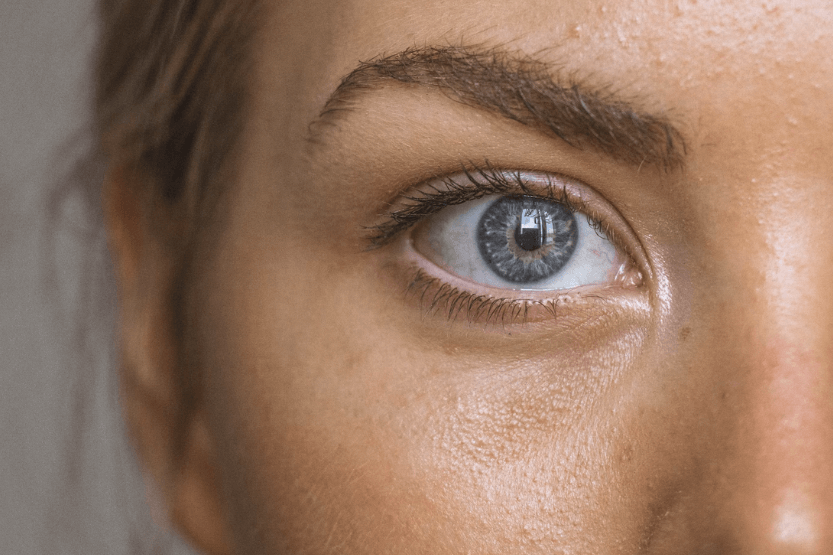
According to Yale Medicine (.org), acne is a common skin condition that affects many people worldwide. It occurs when the hair follicles become clogged with oil and dead skin cells, leading to the formation of pimples, blackheads, and whiteheads.
While several factors can contribute to acne, including genetics, hormones, and diet, the role of face washing in acne prevention and treatment is a topic of debate.
Many people believe that washing the face regularly can help prevent acne by removing excess oil, dirt, and bacteria that can clog pores and cause breakouts.
However, some studies suggest that over-washing the face can strip the skin of its natural oils, leading to dryness, irritation, and even more acne.
The truth is that there is no one-size-fits-all answer to how often one should wash their face to prevent acne. It depends on several factors, including skin type, lifestyle, and environment.
For example, people with oily skin may need to wash their face more frequently than those with dry skin, while those who live in polluted environments may need to wash their face more often to remove dirt and toxins.
It is also important to note that not all acne is caused by poor hygiene or face washing habits. In some cases, acne can be a symptom of an underlying medical condition, such as hormonal imbalances or digestive issues.
Therefore, it is crucial to consult a dermatologist if acne persists despite proper cleansing habits.
In summary, while washing the face is an essential part of skincare, it is not a one-size-fits-all solution for preventing or treating acne.
Finding the right balance between cleansing and moisturizing, as well as addressing any underlying medical issues, is key to achieving clear, healthy skin.
Why Does Your Acne Clear Up When You Stop Washing Your Face?
Many people have reported that their acne cleared up after they stopped washing their face. While this may sound counterintuitive, there are several reasons why this might be the case.
Oil
One of the main reasons why acne can clear up when you stop washing your face is due to the natural oils that your skin produces.
When you wash your face too often, you strip your skin of these oils, which can cause your skin to produce even more oil in an attempt to compensate. This excess oil can clog your pores and lead to acne.
Bacteria
Another reason why acne can clear up when you stop washing your face is due to the bacteria that live on your skin. While some bacteria are harmless, others can cause acne.
When you wash your face too often, you can disrupt the natural balance of bacteria on your skin, which can lead to an overgrowth of acne-causing bacteria.
Skin Type
It’s also worth noting that everyone’s skin is different, and what works for one person may not work for another. Some people have naturally oily skin, while others have naturally dry skin.
If you have naturally oily skin, you may find that washing your face less often can help to balance your skin’s oil production and reduce acne.
Diseases & Conditions
There are also several diseases and conditions that can cause acne, such as polycystic ovary syndrome (PCOS) and hormonal imbalances. If you have acne that is caused by an underlying condition, simply stopping washing your face may not be enough to clear it up.
Skin Care: Acne-Prone Skin
If you have acne-prone skin, it’s important to use the right skin care products to help keep your skin clear. As per the American Academy of Dermatology Association, you should look for products that are labeled as “non-comedogenic,” which means they won’t clog your pores.
It’s also important to avoid using harsh scrubs or exfoliants, as these can irritate your skin and make acne worse.
In conclusion, while stopping washing your face may not be a cure-all for acne, it can be a helpful step for some people. By reducing the amount of oil and bacteria on your skin, you may be able to reduce the frequency and severity of acne breakouts.
However, it’s important to remember that everyone’s skin is different, and what works for one person may not work for another. If you’re struggling with acne, it’s always a good idea to talk to a dermatologist who can help you develop a personalized skin care routine.
Effects of Not Washing Face on Different Skin Types

Not washing your face can have different effects on different skin types. The condition of your skin, whether it is oily, dry, or combination, and the types of things you usually put on your face can determine what happens when you stop washing your face.
Oily Skin
People with oily skin may experience fewer breakouts when they stop washing their face. This is because over-washing can strip the skin of its natural oils, causing it to produce more oil to compensate.
However, it is important to note that not washing your face can also lead to clogged pores and acne.
Dry Skin
People with dry skin may experience more dryness and flakiness when they stop washing their face. This is because not washing your face can lead to a buildup of dead skin cells, which can clog pores and prevent moisturizers from penetrating the skin.
Combination Skin
People with combination skin may experience both benefits and drawbacks when they stop washing their face. While not washing can lead to fewer breakouts in oily areas, it can also lead to more dryness in dry areas.
Eczema and Psoriasis
People with eczema or psoriasis should be cautious about not washing their face, as it can lead to irritation and flare-ups. These conditions require gentle cleansing to remove dirt and bacteria without stripping the skin of its natural oils.
Rosacea
People with rosacea may benefit from not washing their face, as harsh cleansers can exacerbate redness and inflammation. However, it is important to use gentle products and avoid rubbing or scrubbing the skin.
Overall, the effects of not washing your face depend on your skin type and condition. While some people may experience fewer breakouts, others may experience more dryness or irritation. It is important to find a balance between cleansing and maintaining the skin’s natural oils.
Alternatives to Traditional Face Washing
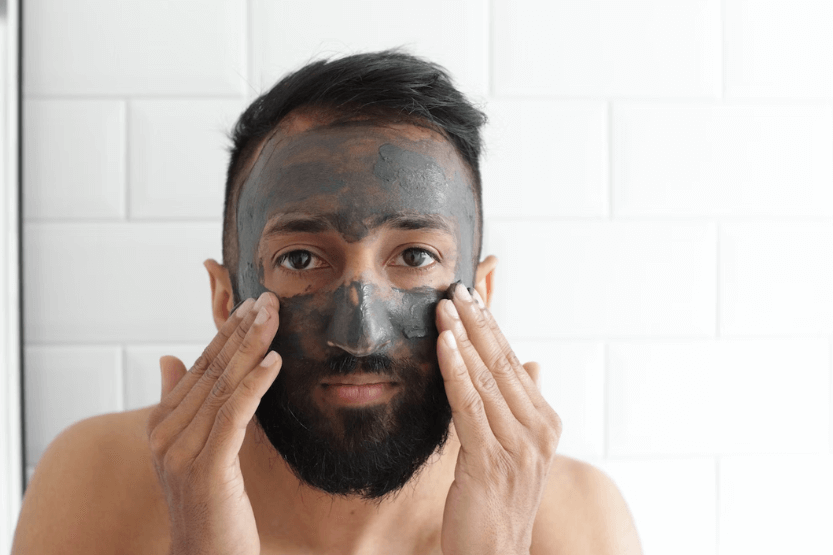
For those who struggle with acne, traditional face washing may not always be the best solution. In fact, some people have found that skipping the face wash altogether can actually improve their skin. Here are some alternatives to traditional face washing that may be worth considering:
Water Only
One of the simplest alternatives to traditional face washing is to simply use water. This may work well for those who have sensitive skin or who find that traditional cleansers are too harsh.
Water can help to remove dirt and oil from the skin without stripping away natural oils. It is important to note, however, that water alone may not be enough to remove makeup or sunscreen.
Cleansing with Toner
Another alternative to traditional face washing is to use a toner instead. Toners can help to remove impurities from the skin while also balancing the pH level. Look for toners that are alcohol-free and contain soothing ingredients like aloe vera or chamomile.
Masks
Masks can be a great way to give your skin a deep cleanse without using traditional face wash. Look for masks that contain ingredients like kaolin clay or charcoal, which can help to draw out impurities from the skin. Masks can be used once or twice a week for best results.
Salicylic Acid
Salicylic acid is a common ingredient in many acne treatments. It works by exfoliating the skin and unclogging pores. Salicylic acid can be found in a variety of products, including cleansers, toners, and spot treatments.
DIY Acne Treatments
For those who prefer natural remedies, there are plenty of DIY acne treatments that can be made at home. Ingredients like honey, tea tree oil, and apple cider vinegar can all be used to help clear up acne.
Be sure to do your research and patch test any new ingredients before applying them to your face.
Skin Care Secrets
Finally, there are a few skin care secrets that can help to keep acne at bay. For example, make sure to change your pillowcase regularly, as bacteria can build up on it over time.
Also, be sure to avoid touching your face throughout the day, as this can transfer oil and bacteria from your hands to your skin.
As someone who has had an acne phase, rest assured that there are numerous alternatives to standard face washing that can effectively enhance acne-prone skin.
While it might require a bit of trial and error to discover your ideal approach, a touch of experimentation can lead you to attain clearer, healthier skin.
Final Thoughts
In conclusion, the idea of not washing one’s face may seem counterintuitive, but it has worked for some people in improving their acne. However, it is important to note that this may not work for everyone and that it is not a substitute for a proper skincare routine.
Skincare is a highly personalized process that varies depending on an individual’s skin type and condition. It is essential to find a skincare routine that works for one’s skin and stick to it.
Skipping essential steps like cleansing and moisturizing can lead to other skin problems like dryness, dullness, and premature aging.
It is also crucial to consider any underlying skin conditions or diseases that may be contributing to acne. In such cases, seeking medical advice from a dermatologist is recommended. They can help in identifying the root cause of the acne and provide personalized skincare recommendations.
In summary, while stopping face washing may work for some people, it is not a one-size-fits-all solution. It is important to have a proper skincare routine that is tailored to one’s skin type and condition. Seeking medical advice is recommended for persistent acne or underlying skin conditions.

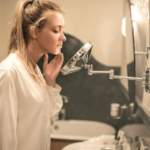
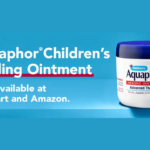
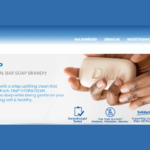
![Say Goodbye To Wrinkles On The Face [Easy Tips to Prevent Them] wrinkles on face](https://skincaregeeks.com/wp-content/uploads/2023/04/wrinkles-on-face-1-2-150x150.png)
